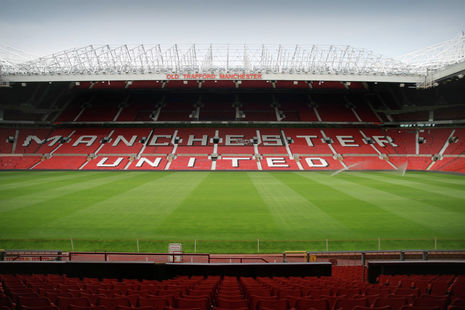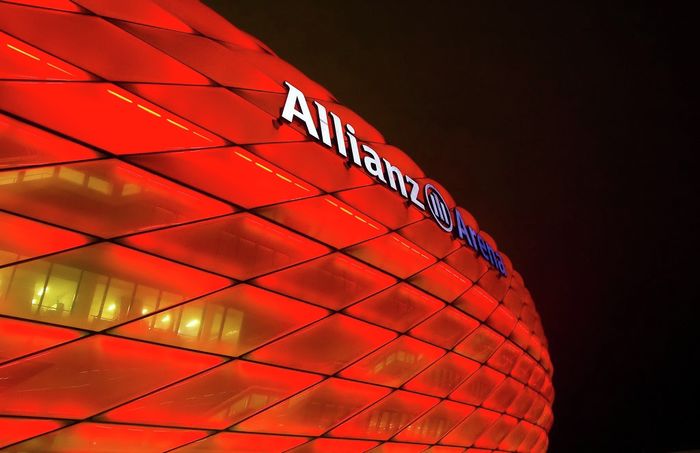A United roundup: is Solksjær still the Red Devils’ man?
Niall Devlin assesses the Europa League final defeat in Gdansk (26/05) and argues that Ole Gunnar Solksjær should be given further time to mould his Manchester United project

What could have been…
For only the second time since Alex Ferguson’s retirement, United have secured successive Champions League football and have come close to experiencing another European triumph - but not close enough. By Solksjær’s own admission, second in the league is not a success and the worry now is that the final in Gdansk, which could have served as a launch pad onto bigger and better things, is actually an indication that this team with this coach have reached their ceiling.
Pressure has, inevitably, begun to mount on Solksjær and the usual questions of whether he is the right man for United have been raised. Solksjær has undoubtedly provided stability after eight years of turbulence, but after coming up short at a crucial stage of yet another cup competition it’s fair to ask whether he’s capable of returning United to the zenith of European club football.
“The worry now is...that this team with this coach have reached their ceiling”
Before assessing United’s failure in Gdansk, it’s appropriate to note that there has been consistent improvement in United’s individual and collective performances in each year of Solksjær’s tenure. Luke Shaw has rejuvenated his career after the wilderness years under Mourinho, Marcus Rashford is fast developing into a devastating attacker and the acquisition of Bruno Fernandes is one of the best Premier League signings since Cantona from Leeds. In a season where others struggled, United thrived in the chaos and, at their best, played a wonderfully entertaining brand of counter-attacking football. At their worst, however, they remain easily frustrated by a narrow, low defensive block. Fernandes has only partially solved that conundrum and can be rendered ineffective when crowded out by opposition defenders.
Overall then, well-founded doubts regarding Solksjær’s tactical acumen persist. While the original team selection in Gdansk was appealing to many fans and displayed a desire to play expansive, entertaining attacking football, it perhaps betrayed a lingering naivety in Solksjær’s managerial ability. It was clear that Unai Emery’s Villareal would enter this match as underdogs and, while it was hardly a vintage attacking performance, their defence was steadfast for most of the 120 minutes. It became obvious that they would be content to sit in a 6-2-2 low block and take their chances on the break, but it appeared that once the match started, Solksjær was unable to influence the game. Perhaps a better game plan would have been to start Rashford or Greenwood on the bench and bring them on late to terrorise a weary defence, but as it was the United boss had no bullets left in the chamber. Indeed, this poor game management was probably their undoing - 100 minutes passed before he made any changes in personnel.
“Solksjær...hasn’t proved his critics wrong quite yet...his United project remains on an upward trajectory”
One interpretation is to say that Solksjær’s reticence to change his on-field XI is indicative of the lack of strength and depth in the squad or, rather, an indication of his own mistrust in squad players to influence a game. United have been playing football for over 22 months straight, with barely a month’s rest between the conclusion of their 19/20 season and the beginning of their 20/21 campaign. With such a short turnaround, they had practically no pre-season and, as a result, no time to implement a strong philosophy and work with new signings behind the scenes. Donny van de Beek has probably been the most high-profile victim of this. At the start of the campaign, fans clamoured for his introduction before it became obvious that he wasn’t on anywhere near the same wavelength as his United compatriots and was ghosting through games. Throughout the season, Donny was a square peg in a counter-attacking round hole. There is no doubting his ability, but lack of time with coaching staff prior to a gruelling domestic schedule has prevented him from establishing himself in Solksjær’s plans and adapting to United’s style of play.
So, is Solksjær capable of implementing the change to spur United on further still, or has he taken them as far as he can? The jury is still out on whether this team with its current spine and manager is capable of challenging for top honours, but after securing another top-four finish and sustaining long runs in cup competitions, Solksjær has earned the right to be backed by the fans and board. It’s fair to say that he won’t be the defining tactical genius of his generation, but his man management skills are at least as good, if not better than, the elite coaches of Europe. Just as Fergie had Steve McClaren, Carlos Queroz or Mike Phelan to shoulder the brunt of the tactical and coaching duties, perhaps Solksjær would benefit from having his coaching staff bolstered. Similarly, he must be backed in the transfer market. Before considering luxury acquisitions like Harry Kane or Jadon Sancho, top of the wish list should be a top-class defensive midfielder capable of partnering Paul Pogba (assuming he stays at Old Trafford) in the middle of the park and minding the shop during his forays into the final third. A proper preseason won’t do this team any harm either. Aside from van de Beek, Amad Diallo has performed exceptionally in recent months and could be the solution to United’s right wing now that it appears that Greenwood’s future lies as a centre forward.
Solksjær is desperate to shake the perception that his current employment is attributable to an injury-time goal scored in 1999. While he hasn’t proved his critics wrong quite yet, mitigation must be applied to this most bizarre of seasons and his United project remains on an upward trajectory. All he needs is time.
 News / Report suggests Cambridge the hardest place to get a first in the country23 January 2026
News / Report suggests Cambridge the hardest place to get a first in the country23 January 2026 News / Students condemn ‘insidious’ Israel trip23 January 2026
News / Students condemn ‘insidious’ Israel trip23 January 2026 News / Cambridge ranks in the top ten for every subject area in 202623 January 2026
News / Cambridge ranks in the top ten for every subject area in 202623 January 2026 News / Uni denounced for bypassing ‘democratic structures’23 January 2026
News / Uni denounced for bypassing ‘democratic structures’23 January 2026 Comment / Cambridge has already become complacent on class23 January 2026
Comment / Cambridge has already become complacent on class23 January 2026









